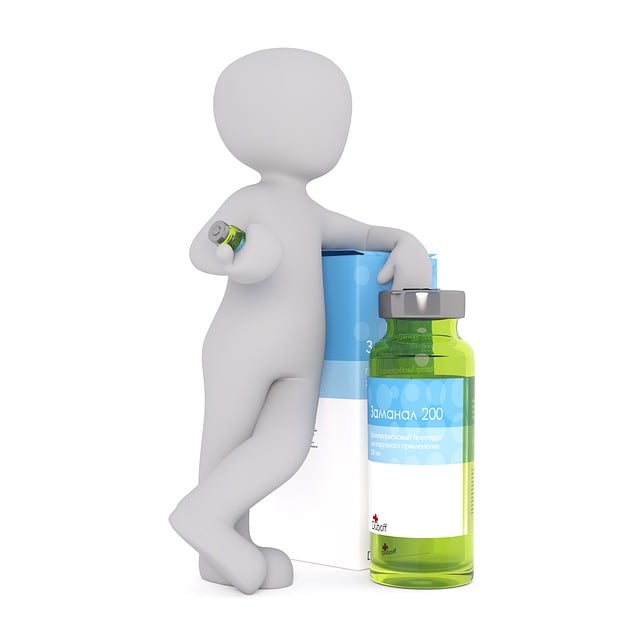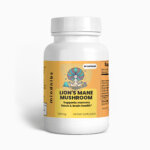
“Supplementing Your Child’s Diet: What Every Parent Should Know”
As parents, we all want what’s best for our children. One of the most important aspects of their development is ensuring that they are getting all the essential nutrients they need to thrive. However, despite our best efforts, it can be challenging to ensure that our children are receiving a well-rounded and balanced diet. That’s where supplements come in. Supplementing your child’s diet with vitamins and minerals can provide additional support for their growing bodies and minds. In this article, we will explore everything you need to know about supplementing your child’s diet to ensure optimal health and wellness. So, if you want to give your child the best possible start in life, keep reading to learn how supplements can help.
1. The Importance of Proper Nutrition for Children
It’s no secret that a healthy diet is important for people of all ages, but it’s especially crucial for children. In fact, proper nutrition during childhood can set the foundation for good health throughout a lifetime. Here are some reasons why:
- Healthy growth and development – Children need a wide variety of nutrients to support their growing bodies and brains. Adequate intake of protein, calcium, iron, and other essential vitamins and minerals can help ensure healthy bones, muscles, and organs. It can also improve cognitive function and enhance learning abilities.
- Disease prevention – A balanced diet can lower the risk of chronic diseases like type 2 diabetes, obesity, and heart disease. It can also help boost immunity, preventing infections and illnesses.
- Mental health – Good nutrition is not only important for physical health but mental health as well. Studies have shown that a healthy diet can reduce symptoms of anxiety and depression and enhance overall well-being.
In summary, proper nutrition is vital for children’s overall health and well-being. As parents and caregivers, it’s our responsibility to ensure they are getting the nutrients they need. With a little bit of planning and preparation, we can set our children up for lifelong health and happiness.

2. Understanding the Nutritional Needs of Growing Bodies
As kids grow, their bodies need proper nutrition to support healthy growth and development. Children who don’t get enough proper nutrition may face a variety of health problems, including stunted growth, weakened immune systems, and developmental delays. As such, it is crucial that parents provide their children with a diet rich in all the necessary nutrients for development.
One key nutrient for growing children is protein. Proteins are the building blocks that are necessary for a child’s growth and development. Children require proteins to build and repair cells in the body and provide energy. Protein can be found in many food sources, such as eggs, meats, fish, and dairy products. Vegetarian sources such as beans, lentils, and nuts are also great options for protein.
In addition to protein, carbohydrates play a crucial role in a child’s diet. Carbohydrates provide energy and fuel the brain’s function. Not all carbohydrates are created equal, though. It’s important to choose complex carbohydrates, such as whole-grain bread, fruits, vegetables, and beans, over the simple carbohydrates found in sugary treats. Complex carbs provide a slow release of energy, which will help keep your child energized for longer periods of time.

3. Common Nutritional Deficiencies in Children and How to Address Them
If you want your child to grow and develop with excellent health, you need to make sure they get all the necessary nutrients. Unfortunately, many children suffer from nutritional deficiencies that can lead to long-term health problems. Fortunately, most nutritional deficiencies are preventable and easily treatable.
Vitamin D Deficiency: This is one of the most common nutritional deficiencies in children. It can cause rickets, a disease that affects bone development, and may also be linked to type 1 diabetes, multiple sclerosis, and certain cancers later in life. Some of the best sources of vitamin D include foods such as fatty fish, egg yolks, and fortified dairy products. Vitamin D supplements are also widely available and may be recommended if your child isn’t getting enough through their diet.
Iron Deficiency: Iron is essential for the production of red blood cells, which carry oxygen throughout the body. Symptoms of iron deficiency in children can include pallor, fatigue, and poor concentration. Good sources of iron include meat, poultry, beans, and iron-fortified cereals and bread. If your child doesn’t get enough iron through their diet, you may need to consider giving them an iron supplement, especially if they are vegetarian or vegan.
Vitamin C Deficiency: Vitamin C is necessary for growth and development and healthy immune function. It is also essential for the absorption of iron. A deficiency can lead to scurvy, which can result in gum disease, anemia, and skin problems. Foods rich in vitamin C include citrus fruits, kiwi, strawberries, tomatoes, and bell peppers. If your child doesn’t get enough vitamin C through their diet, consider adding a supplement to their daily routine.

4. The Role of Supplements in Supporting Your Child’s Health
When it comes to your child’s health, you want them to receive all the nutrients they need, and sometimes that means turning to supplements. While a balanced diet is the best way to provide your child with essential vitamins and minerals, supplements can help fill in nutritional gaps. Here are some ways supplements can support your child’s health:
- Vitamin C – This powerful antioxidant can help boost your child’s immune system, protect against colds and infections, and even improve iron absorption.
- Omega-3s – These fatty acids are crucial for brain development and function, and can also help reduce inflammation and promote heart health.
- Probiotics – These “good bacteria” can help improve digestion, boost the immune system, and even support mood and behavior.
Of course, it’s important to choose high-quality supplements that are safe and effective. Look for trusted brands that have undergone third-party testing to ensure purity and potency. And always talk to your pediatrician before starting your child on any new supplement regimen.
Remember, supplements should never replace a healthy diet or a doctor’s advice. But with the right choices and guidance, they can be a valuable part of supporting your child’s health and wellness.

5. Key Considerations When Choosing Supplements for Children
As parents, we all want the best for our children. One way we can ensure they receive proper nutrition is by supplementing their diet with vitamins and minerals. However, not all supplements are created equal, so it’s important to keep the following key considerations in mind when choosing supplements for our little ones:
- Age-appropriate dosage: It’s crucial to select supplements that are tailored to your child’s age range. Always read the label and follow dosing instructions carefully.
- Safe ingredients: Look for supplements that contain natural, non-toxic ingredients. Avoid those that contain additives, fillers, and preservatives that can be harmful to your child’s health.
- Third-party testing: Choose supplements that have been independently tested and certified for purity and potency. This will give you peace of mind knowing that what you’re giving your child is safe and effective.
Remember, supplements should never replace a nutritious diet. However, they can provide an extra boost of nutrients that children may be missing. By keeping these key considerations in mind, you can make an informed decision and choose the best supplements for your child’s individual needs.
6. Practical Tips for Supplementing Your Child’s Diet Safely and Effectively
Ensuring that your child is receiving a balanced diet is crucial for their growth and development. However, even the healthiest of diets can lack important nutrients. To supplement your child’s diet safely and effectively, follow these practical tips:
- Consult with your child’s pediatrician before giving them any supplements. They can help determine if your child needs supplements and recommend safe options.
- Choose a supplement that is appropriate for your child’s age and needs. Look for ones that are specifically formulated for children, and make sure to read the label carefully to ensure they are getting the right amount.
- Never use supplements as a substitute for a healthy diet. They should only be used as a complement to a well-balanced diet.
It’s also important to keep in mind that some supplements can interact with medications or have adverse effects. Always inform your child’s pediatrician of any supplements they are taking to ensure they are safe and effective.
Finally, make sure to store supplements out of reach of children. While they can be beneficial in the right doses, they can also be harmful if taken in excess. Follow these tips to safely and effectively supplement your child’s diet, and be sure to consult with their pediatrician if you have any concerns or questions.
7. Helping Your Child Develop Healthy Eating Habits for Life
Maintaining a healthy and balanced diet is one of the cornerstones of a healthy life. As parents, we want nothing but the best for our children, and instilling healthy eating habits is one of the best ways to set them on the path to healthy living. With the right guidance and motivation, our children can develop healthy eating habits that they can carry with them for a lifetime.
One of the best ways to help our children develop healthy eating habits is by introducing them to a wide variety of foods. Encourage them to try new fruits, vegetables, and whole grains that they may not have tasted before. This will help broaden their taste preferences and make them more willing to try new foods in the future. Additionally, involve your child in the meal planning and preparation process. This will give them a sense of ownership and control over what they are eating, and may make them more willing to try new and healthier foods.
Another important aspect of developing healthy eating habits is to limit the intake of sugary and processed foods. These foods are often high in calories, low in nutrients, and can contribute to weight gain and other health problems. Instead, focus on incorporating more whole, nutrient-dense foods into your child’s diet. Make water the go-to beverage at meal times, instead of sugary drinks. And finally, remember that children tend to model the eating habits of the adults in their lives. So be a role model: eat a healthy and balanced diet yourself, and your child is more likely to do the same.
In conclusion, helping your child develop healthy eating habits is an essential aspect of setting them on the path to a healthy life. By introducing them to a variety of foods, involving them in meal planning and preparation, and limiting their intake of sugary and processed foods, you can help shape their dietary choices for the better. Remember that good eating habits can be developed at any age, and with your encouragement, your child can develop healthy eating habits that will benefit them for a lifetime.
Providing a healthy diet for children can be a daunting task. It is essential for parents to take advantage of supplements to ensure their child is receiving adequate nutrition. By taking the time to investigate the family’s nutritional needs, mothers and fathers can more accurately determine which nutritional supplements will meet the nutritional needs of their child. Doing so will help to ensure their little ones grow up with vitality and a strong immune system. With the right approach and knowledge, families can now enjoy their children’s meals and feel confident in the nutritive content.

























